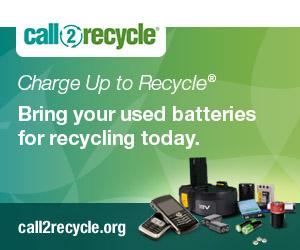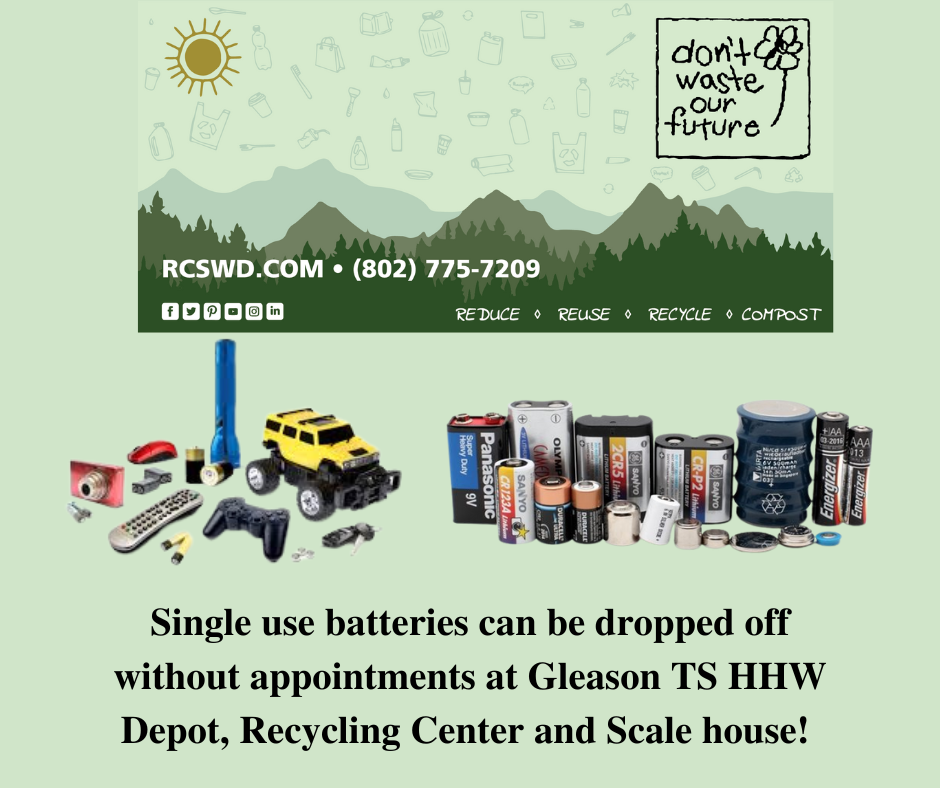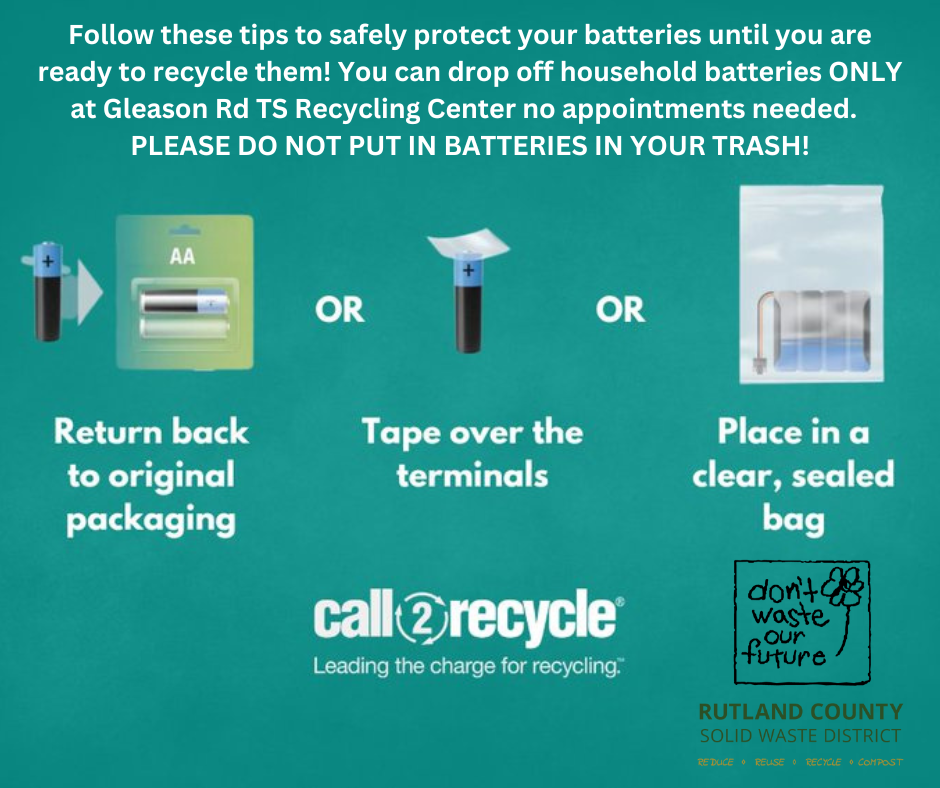Batteries

That's right. Household batteries, both single-use and rechargeable, can be dropped off at more than 100+ convenient locations throughout Vermont. Most locations accept cell phones too. For all other larger batteries like car, motorcycle, and boat lead-acid or E-bike and E-scooter batteries, Click here for a drop off location near you.
A short video link about battery recycling, which shows some shots of various end materials captured from batteries. https://www.youtube.com/watch?v=7dIZ2Y1Vfnk. Another nice video on Lithium ion Batteries.
https://www.youtube.com/watch?v=s2xrarUWVRQ

Disposal Options
Batteries do not belong in the recycling bin. Some batteries are banned from the trash, and all batteries are accepted for special recycling at the District Transfer Station and at several other collection locations in the county and state. The following types of batteries should NEVER be thrown in the trash:
Lithium metal (non-rechargeable) batteries are commonly used in cameras. They are potentially reactive and toxic.
Button cells are the small, disc-shaped batteries commonly used in hearing aids, medical devices, watches, and calculators. These usually contain mercury or silver and are therefore considered toxic and are banned from the landfill. Many pharmacies, nursing homes, audiologists, and hearing aid dispensers, also offer free recycling of button cell batteries.
- Lead acid/wet cell batteries found in cars, motorcycles, and boats contain toxic materials and are banned from the trash.
- Rechargeable batteries contain toxic material and are banned from the trash:
- Nickel cadmium (Ni-Cd, or Ni-Cad) batteries are found in power tools, cordless phones, and many other rechargeable appliances.
- Nickel metal hydride (NiMH) batteries are used in computers, cell phones, camcorders, and other portable devices.
- Lithium ion batteries are used in cell phones and computers.
- Small sealed lead acid batteries are found in phone systems, emergency lighting, and battery backup systems. They’re usually rectangular and heavy, with wires sticking out.
- Alkaline and carbon-zinc batteries: Regular household non-rechargeable alkaline batteries and carbon-zinc batteries are not banned from landfill; however, the District Transfer Station accepts them for special recycling, which is far better for the environment.

| Attachment | Size |
|---|---|
| 1.63 MB | |
| 5.2 MB | |
| 2.28 MB |
